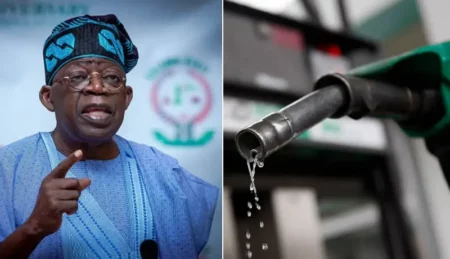The Nigerian government’s acknowledgement of spending N5.4 trillion on oil subsidies in 2024 has generated significant debate and worry. This admission coincides with current deliberations on the viability of these subsidies and their effects on the country’s economy.
The announcement was made during a press briefing by the Minister of Finance, Budget, and National Planning, Zainab Ahmed, who detailed the fiscal implications of the subsidy program. “The government has expended N5.4 trillion this year to keep fuel prices stable and affordable for Nigerians,” Ahmed said. “While this measure is intended to alleviate the economic burden on our citizens, it has also placed a significant strain on our national budget.”
The subsidy program, designed to reduce the cost of petroleum products for consumers, has long been a contentious issue in Nigeria. Proponents argue that subsidies are necessary to ensure that the average Nigerian can afford fuel, which is crucial for transportation and economic activities. Critics, however, contend that the subsidies are unsustainable and prone to abuse, draining resources that could be better utilized in other sectors such as healthcare, education, and infrastructure.
Economic analysts have expressed concern over the burgeoning cost of the subsidies. “Spending N5.4 trillion on oil subsidies is not only unsustainable but also diverts funds from critical development projects,” said Dr Olusegun Ajayi-Kadir, an economist with the Lagos Business School. “The government needs to adopt more sustainable energy policies and consider gradually phasing out subsidies to reduce fiscal pressure.”
The revelation has also drawn reactions from various stakeholders, including international financial institutions and local advocacy groups. The International Monetary Fund (IMF) has repeatedly advised Nigeria to reform its subsidy regime, citing the need for fiscal consolidation and efficient public spending. “Subsidy reforms are essential for Nigeria’s economic stability and growth,” said an IMF representative. “Redirecting subsidy funds towards productive investments can yield long-term benefits for the country.”
Local advocacy groups, however, caution against the abrupt removal of subsidies without adequate measures to cushion the impact on the poor. “While we recognize the economic argument for subsidy reform, it is crucial that the government implements a phased approach that includes social safety nets to protect the most vulnerable,” said Eze Onyekwere, Director of the Centre for Social Justice.
In response to the criticism, the government has indicated plans to review the subsidy framework and explore alternative strategies to manage fuel prices. “We are committed to finding a balance that ensures economic sustainability while protecting our citizens from the adverse effects of rising fuel costs,” Ahmed added. “This may involve targeted subsidies and investments in renewable energy sources to diversify our energy mix.”
The debate over oil subsidies is likely to intensify as the government moves forward with its review process. Lawmakers, industry experts, and the public will be closely watching how the administration navigates this complex issue, balancing fiscal responsibility with social equity.
As Nigeria grapples with the implications of its subsidy policy, the broader question remains: how to achieve a more sustainable and equitable economic model that can support growth and development for all its citizens. The government’s handling of the N5.4 trillion subsidy expenditure will be a crucial test of its commitment to fiscal prudence and economic reform.
